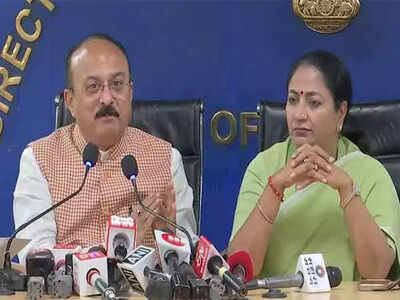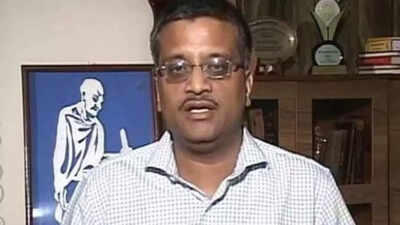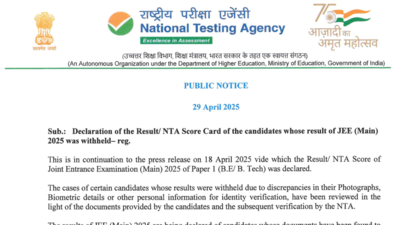Delhi school fee regulation bill 2025 draws praise from parents, criticism from opposition

NEW DELHI: The Delhi Cabinet has approved a landmark legislative proposal aimed at regulating fee structures in private schools across the capital. Titled the Delhi School Education Transparency in Fixation and Regulation of Fees Bill, 2025, the draft law is positioned as a measure to address long-standing concerns of arbitrary fee hikes and lack of accountability in the private school sector.
Announced by Chief Minister Rekha Gupta and Education Minister Ashish Sood, the bill introduces a structured, three-tier mechanism for fee regulation, with provisions for substantial penalties ranging from Rs 1 lakh to Rs 10 lakh for non-compliance. It also sets forth new rules to prohibit coercive actions against students, such as withholding results or removing names from rolls, in cases of non-payment of hiked fees.
The Bill has sparked a wave of reactions across the capital, with parents and school principals largely welcoming the proposal while the opposition has strongly criticised its timing and scope. The draft legislation aims to regulate private school fee hikes and introduce transparency in the process, marking the most significant reform in Delhi’s school fee regulation in decades.Chief Minister Rekha Gupta, flanked by Education Minister Ashish Sood, announced on April 29 that the new law proposes stringent penalties for non-compliant schools and will bring relief to thousands of parents across 1,677 private schools in the city. The bill introduces a structured, three-tier committee system for fee approvals and bans coercive actions against students over unpaid fees.
Educators and parents applaud transparency and representation
The bill has received widespread approval from education stakeholders, especially school principals and parent groups. As reported by PTI, Sudha Acharya, principal of ITL International School in Dwarka, welcomed the move, saying it would “bring transparency between schools and parents” and resolve longstanding concerns around unexplained fee hikes.
RN Jindal, chairperson of Sovereign School in Rohini, also supported the bill’s approach. “Including five parents in the fee regulation committees is a unique approach, as it allows them to directly share their perspectives on fee-related matters,” he was quoted as saying by PTI.
The inclusion of parents, especially women and those from SC/ST communities, in the committee structure was described as a long-pending reform. Aprajita Gautam, president of the Delhi Parents’ Association, called the bill a “long-awaited” development, according to PTI. She added, “We hope there will be no further issues related to fee hikes. The use of a lottery to select parent representatives will also help ensure fairness.”
Opposition questions timing, calls bill an ‘eye-wash’
Despite the government’s claims, the Aam Aadmi Party (AAP) has sharply criticised the bill for failing to address fee hikes already imposed for the 2025–26 academic year. In a letter to Chief Minister Gupta, AAP leader and Leader of Opposition Atishi argued that the bill’s provisions only come into force from the 2026–27 academic year, offering no immediate relief to parents currently facing increased school fees.
As reported by ANI on April 30, Atishi called the legislation an “eye-wash” and demanded urgent measures. She stated, “In the absence of controlling the excessive and unreasonable fee hike in the current academic year, passing a new law for the coming years would seem merely an eye-wash.” She urged the government to freeze current hikes, order refunds where hikes have already been collected, and delay all fee changes until the bill is fully enacted.
She also stressed the need for public consultation, suggesting the bill be placed in the public domain to gather stakeholder feedback before being introduced in the Assembly.
Future implications and enforcement
While the bill does include robust mechanisms — including penalties up to Rs 10 lakh and the potential takeover of non-compliant schools — critics argue that its impact will depend on how swiftly and effectively the government enforces its provisions. With a session of the Delhi Assembly expected to be called soon for its passage, the reactions underscore both hope and scepticism surrounding this major policy intervention.




